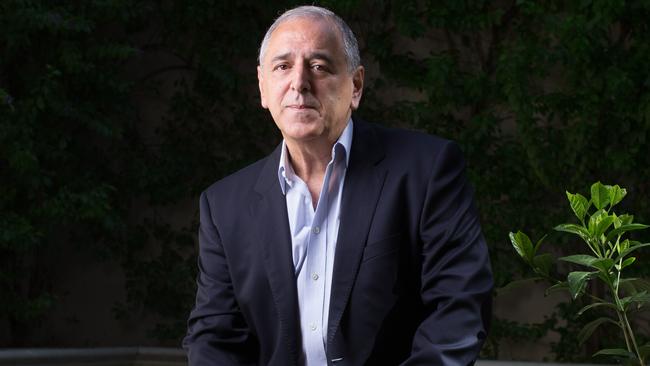New DV court needed to fast-track cases, protect victims: Former DPP
A new specialised domestic violence court - with plenty of specially-trained staff - is needed to better protect victims and improve outcomes, a former DPP says.
SA News
Don't miss out on the headlines from SA News. Followed categories will be added to My News.
South Australia needs a new specialised domestic violence court – with a large contingent of comprehensively-trained judiciary and staff – to fast-track cases, improve outcomes, and better protect victims, a former Director of Public Prosecutions says.
Stephen Pallaras says that during his time as the state’s DPP, from 2005 to 2012, women would often be subjected to further attacks by alleged perpetrators while waiting for the court system to go through its sluggish processes.

“It can take months, depending on the situation,” he said. “We need a way to recognise the immediacy of the need for a solution.”
Mr Pallaras, who is running for the Upper House at the 2026 state election, is lobbying for an overhaul to the way SA handles domestic violence incidents.
“A new court, staffed with expertly and relevantly-trained judges, lawyers, court staff and police officers is what I am advocating,” he said. “Yes, it will be expensive but it is just a matter of prioritising the health and safety of victims.”
South Australia introduced the country’s first specialised family violence court at the Elizabeth Magistrates Court in 1999. Today, the court sits in various metropolitan and rural magistrates courts and hears domestic and family violence cases, including assaults and applications for intervention orders.
It is understood all magistrates in SA participate in regular judicial development activities, including training in the family violence jurisdiction. And wherever possible, family violence cases are supported by staff from the court’s Abuse Prevention Program team.
However, Mr Pallaras said the court was under-resourced, given the number of cases it needed to deal with, and there was no specialised DV training for those who run it.
He said a DV court with more staff, who are specially trained to handle the complexities of DV cases, would lead to quicker resolutions and better protection for victims.
General manager of advocacy group Embolden Mary Leaker said quicker court processes would better support victim-survivor safety “particularly in cases where the alleged offender has not been remanded in custody”.
“Shorter wait times would also reduce the number of victim-survivors deciding not to proceed,” she said.
Ms Leaker said it was also “critical” that the judiciary undertook comprehensive training on the gendered dynamics of coercive control, now that the state government has introduced coercive control legislation into parliament.
A government spokesman said the government was committed to taking action against the scourge of domestic and family violence.
For support, phone 1800 RESPECT.






